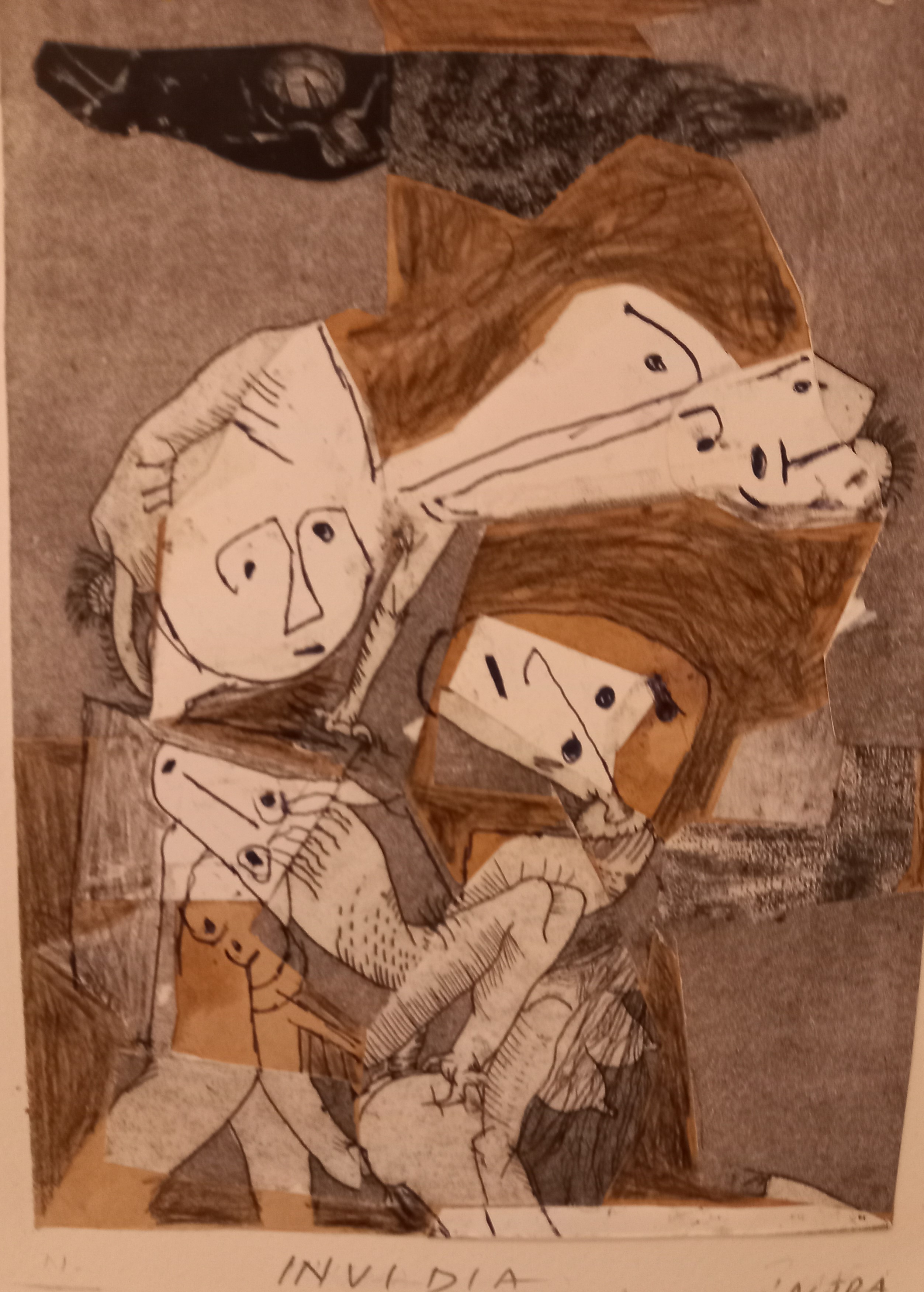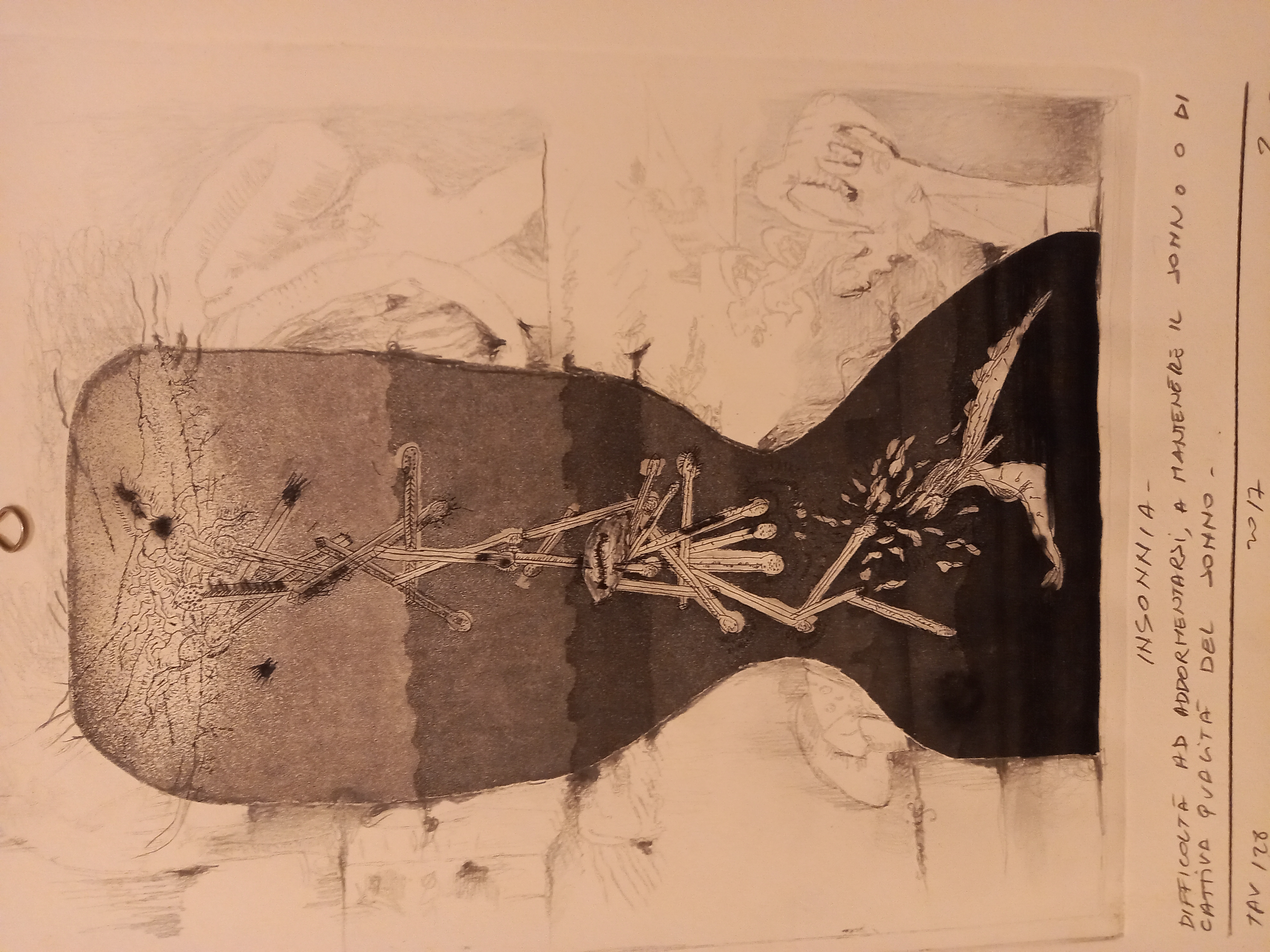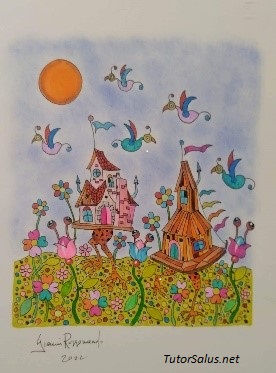Flashes from ‘Lisistrata’[1], 2023 final performance of III year students from ’Accademia d’Arte del Dramma Antico’ at Siracusa (Sicily, Italy). Video by Franca Centaro, shared with www.youtube.com.
No doubts for the young student girl of the ‘Accademia d’Arte del Dramma Antico’ who comes from the Classical high school and acted in ‘Lisistrata’, 2023 final Academy performance of III year students. She has just left the Greek Theatre where she acted as one of Ocean’s daughters in ‘Prometheus chained’ by Aeschylus : I cannot take any of her time, she’s literally gobbling down a small sandwich before moving to the ‘Scenography workshops’, just a little distant, of I.N.D.A. Foundation for the rehersals until late at night in ‘La Pace’ by Aristophanes[2] which also will go on stage in days.
Lisistrata’s project "just doesn't work today beacuse sex is not essential", the student girl says without any hesitation and rush : a coalition of women determined not to make love with their husbands any more couldn't stop wars, it wouldn’t have the power.
As a matter of facts the coalition is already a declared war between the two sexes, the old goal of a supremacy – phallocracy, it has to be said – where either man or woman wants dominate and, taking possession of partner qualities, maintain hegemony : however the outdated argument – somehow always revived – of that society from 411 b.C. Aristophanes hides in the thousands double meanings of the text where men and women look so much alike that barely the features allow us to differentiate them.
How to communicate it and to make it debatable nowadays ?
Here it is the function of the Theatre, which first of all goes, individually, ‘ad socium’ and only then also ‘ad civitatem’ : and this is also the competence required of the actor’s professionalism.
So that a final Academy essay is mainly a test of the relationship between any student and the director – not a father not a teacher not an employer – and cannot fail to pass through the thought of a friendship, fruitful -or not – and connected to a more solid professionalism, which in the actor’s case is acting, as a matter of fact.
No Peace then, though rightly coveted and sometimes even gladly touched, can accompany what will in the time prove to be a partnership – real profitful productive – but only in hard-working respect for the other. And here, at last, the keen judgement of the Academy graduating girl sounds unexpectedly decisive and present : in love does it really matter to make love ?
This shouldn't surprise us too much because the 'qui pro quo' is widespread, also among the specialists who deal with the Freudian drive.
Marina Bilotta Membretti / Cernusco sul Naviglio June 21, 2023
[1] ‘Lisistrata’, by Aristophanes March 31 – April 1-2, 2023. Translation by ‘Accademia d’Arte del Dramma Antico’, sezione ‘Giusto Monaco’ / Director: Mauro Avogadro / Choral singing head : Simonetta Cartìa / Characters III year students of the ‘Accademia d’Arte del Dramma Antico’ sezione ‘Giusto Monaco’ : Vanda Bovo, Sebastiano Caruso, Gaia Cozzolino, Althea Iorio, Domenico Lamparelli, Federica Leuci, Emilio Lumastro, Carlotta Messina, Edoardo Pipitone, Jacopo Sarotti, Mariachiara Signorello, Flavia Testa / With the participation of II year students of the ‘Accademia d’Arte del Dramma Antico, sezione Giusto Monaco : Caterina Alinari, Andrea Bassoli, Alberto Carbone, Sara De Lauretis, Carloalberto Denoyè, Enrica Graziano, Ferdinando Iebba, Moreno Mondi, Matteo Nigi, Marta Parpinel, Alice Pennino, Francesco Ruggiero, Elisa Zucchetti / Sets and costumes by the ‘Scenography and tailoring workshop’ of I.N.D.A. Foundation https://www.indafondazione.org/
[2] ‘La Pace’ is a comedy by Aristophanes, staged in 421 a.C. after Nicia Agreement, which was signed in the same year, as a wish for a lasting peace that however it was not possible.




